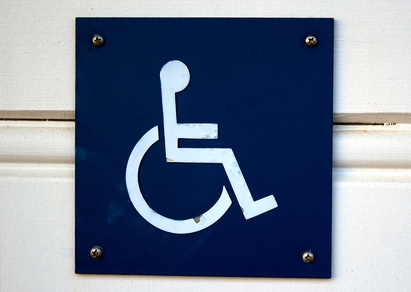
A handicap parking sticker is a necessity given to people who have disabilities that make mobility difficult or impossible. If you have a disability and mobility has become an issue for you, speak with your doctor about the possibility of obtaining a handicap parking sticker because in many cases, you'll need her approval. Handicap sticker rules vary from state to state, but some rules are similar across states.
To obtain a handicap sticker, you must suffer from a condition that affects your mobility such as heart disease, lung disease, a diagnosed disease, a disorder that affects mobility (such as lupus SLE or muscular dystrophy), certain vision problems or the inability to use or the loss of one or both legs or both hands or arms. In most cases, you must fill out an application for a handicap sticker and have your physician, chiropractor, optometrist, opthamologist or a physician's assistant authenticate your need for the sticker with a signature. In some states, such as California, you only need to visit the Department of Motor Vehicles if you have lost both arms or one or both legs to obtain a handicap sticker. Your state may or may not require a processing fee.
When using a handicap sticker, you're entitled to park in the spaces that contain a wheelchair symbol or at a curb painted blue. You're also allowed to park at green curbs (usually time-limit parking) for an unlimited amount of time or at spaces allotted for residents or customers of a specific building or place of business. You may park in metered parking for free. Even with a handicap sticker, you can't park in a red zone, white zone or yellow zone.
There are a few types of handicap stickers. Disabled veteran stickers may be given to veterans who have a disability affecting mobility or blindness as a result of active duty. They're entitled to the same rights and privileges as those with civilian handicap stickers. In addition, you may receive a temporary handicap sticker (from one to six months) for temporary injuries such as a broken leg or while recovering from back surgery. Those with permanent disabilities can obtain permanent handicap stickers, which must be renewed every two to five years, depending on the state.
Only the person who was issued the handicap sticker can it. Unlawful use of a handicap sticker, forging a medical authority's signature to obtain a handicap sticker or using a fake handicap sticker can result in fines and penalties. Each state is different. For example, California fines offenders $250 to $3,500 and may place them in jail for six months in lieu of or in addition to the fine.